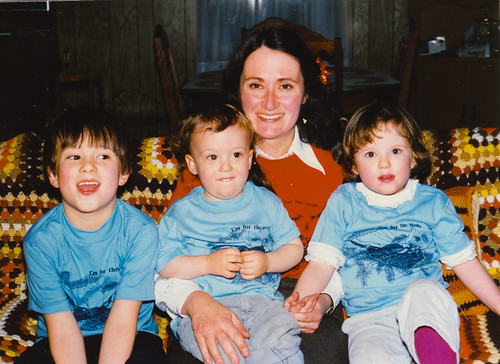Friday, June 8, 2018
Good News: Declining Birth Rate
In the past couple of weeks, a lot of news stories have centered around the announcement by the Centers for Disease Control and Prevention that America’s birth rate has fallen to a 30-year low. Teen births in particular are down 70 percent since the peak in 1991, but the overall trend was for women across the board.
Not many reporters related this to another news story, that people born in the 1980s are the brokest generation, their median net worth 34 percent lower than what past trends would predict for their age group. When people are working 50 or 60 hours a week at two part-time minimum wage jobs to barely get by, paying for their own health care coverage and trying to repay their student loans, they can hardly afford to quit or get child care to start a family, and except at the highest management levels, most corporate jobs pay pretty poorly when employees have so little leverage. But it isn’t only millennials who are having fewer children—the only age group having an increase in the birth rate is women in their 40s.
The slant of every story I’ve heard or read was that the falling birth rate is a bad thing—that we need more young people to join the work force as older workers retire. Not one news story looked at the issue from the standpoint of world and national over-population and our dangerously imperiled natural resources. Instead of bemoaning this, economists who have a clue about how life on this inter-connected planet actually works should be considering strategies that would allow us to thrive, not just despite a declining population but because of it.
The population problem seems to be at the lowest level of people’s awareness right now. I suppose it’s understandable with so many other urgent problems right in our face, from the serious repercussions of climate change, the huge amount of plastic garbage taking over the world’s oceans, major corporations selling public utilities water resources at a huge profit even as water supplies dwindle, and so much else. Yet at a fundamental level, human population is at the very root of every one of these issues.
When I’ve talked about population in the past, the only responses I’ve heard from listeners have been at opposite ends of the spectrum—either I should shut up about it because Paul Ehrlich’s book, The Population Bomb, was debunked decades ago (which is of course untrue) and thanks to GMOs and pesticides, we can feed many times what the world’s human population is now (which of course is also untrue); or that I should shut up about it because I have three children and so have permanently squandered any standing to speak on the issue at all. Ironically, Russ’s parents have only three grandchildren, and at this late date, Russ and I have zero grandchildren, so in the long view, our contribution to overpopulation has been smaller than it may seem.
I suspect that most of us realize overpopulation is indeed a problem but don’t know what to do about it. The way first world countries have reduced their birthrates has always involved educating women and giving them healthcare and legal agency over their lives. Now that we’re finally reducing our birthrate here in America, we should be celebrating even as we look to the future to find ways our society can thrive, economically and in more fundamentally important ways, as we lower the birthrate.
Scolding a 66-year-old woman about how many children she had in the 1980s and telling her that she has no right to speak out about overpopulation is just as much an effort to squelch information about the issue as denying that a problem exists in the first place. Isn’t it time we looked to the future, not thirty-odd years in the past, and worked together to solve these problems?
